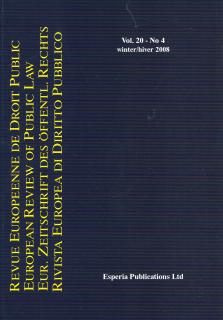
Constitutional Law / Droit constitutionnel
Serbia / Serbie
Violeta Beširević
Associate Professor at the Union University Law School, Belgrade
This chronicle is concerned with efforts to implement the right to provincial autonomy in Serbia. It sheds light on the fact that unlike most European countries, Serbia has not yet recognized the growing importance of regionalism and value-based reasons for implementing decentralization. By using the particular example of the Autonomous Province of Vojvodina, the chronicle traces difficulties in the redistribution of State functions downward towards provincial authorities. It shows that putting political decentralization into effect is associated with mystification and rhetoric reforms rather than with substantial reforms aimed to give citizens or their elected representatives more power in public decision-making. The predominant approach towards political decentralization still equalizes this process with ultimate territorial secession and promotion of an independent State rather than with its real aims of enabling democratization, promoting ethnic harmony, and eliminating fears of territorial secession. The unusual constitutional status that autonomous provinces enjoyed in the former Yugoslavia, the country’s recent experience of territorial secession, the strong influence of those who favor a unitary State and, above all, the incomplete constitutional arrangement, are key reasons why enduring disagreement on the status of the autonomous provinces continues. In the meantime, the Autonomous Province of Vojvodina is still left without its new Statute although the Constitution provides for differently.





















